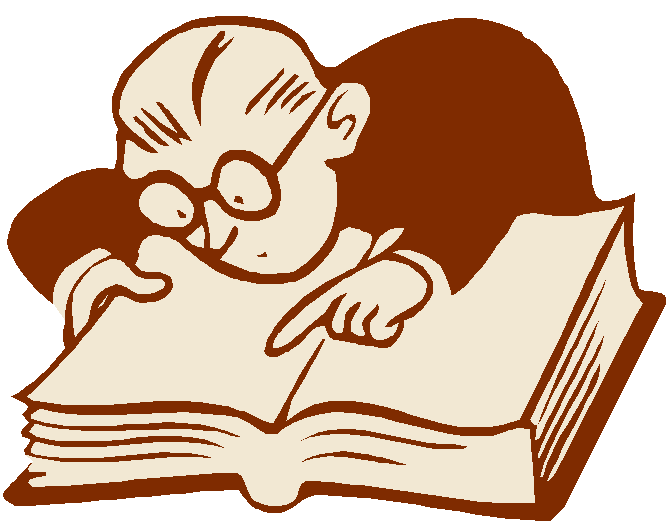
- •Text a public administration
- •II. Найдите в тексте ответы на следующие вопросы:
- •III. Дополните предложения словами и выражениями из текста:
- •IV. Заполните пропуски соответствующими предлогами, где необходимо:
- •V. Приведите в соответствие термины и их определения:
- •VI. Какими наиболее близкими по смыслу словами или выражениями
- •III. Задайте к тексту 6 – 7 вопросов разного типа. Government purposes and public policies
- •Unit two Text a levels of government
- •I.Прочитайте текст. Укажите, какое из приведенных ниже утверждений соответствует содержанию текста t (true), а какое не соответствует f (false); сделайте необходимые исправления:
- •II. Найдите в тексте ответы на следующие вопросы:
- •III. Дополните предложения словами и выражениями из текста:
- •IV. Заполните пропуски соответствующими предлогами, где необходимо:
- •V. Приведите в соответствие термины и их определения :
- •VI. Какими наиболее близкими по смыслу словами или выражениями
- •IX. Переведите текст 2-го урока на русский язык.
- •III. Замените подчеркнутое в предложении слово, используя один из
- •Задания к тексту
- •I. Прочитайте текст. Укажите, какое из приведенных ниже утверждений соответствует содержанию текста t (true), а какое не соответствует f (false); сделайте необходимые исправления:
- •II. Найдите в тексте ответы на следующие вопросы:
- •III. Дополните предложения словами и выражениями из текста:
- •II. Письменно своими словами изложите основное содержание
- •III. Задайте к тексту 6 – 7 вопросов разного типа.
- •The working of local governments Text a in great britain
- •I.Прочитайте текст. Укажите, какое из приведенных ниже
- •II. Найдите в тексте ответы на следующие вопросы :
- •III. Дополните предложения словами и выражениями из текста:
- •IV. Заполните пропуски соответствующими предлогами, где необходимо:
- •III. Замените подчеркнутое в предложении слово, используя один из
- •I. Опираясь на информацию текста, найдите ответы на следующие
- •II. Письменно своими словами изложите основное содержание
- •Organizing for public relations
- •In local governments
- •Примечание:
- •Unit five the finance of local governments Text a of modern britain
- •I.Прочитайте текст. Укажите, какое из приведенных ниже утвержде
- •II. Найдите в тексте ответы на следующие вопросы:
- •IV. Заполните пропуски соответствующими предлогами, где необходимо.
- •III.Замените подчеркнутое в предложении слово, используя один из
- •I Прочитайте текст. Опираясь на информацию текста, найдите отве-
- •III. Задайте к тексту 6 – 7 вопросов разного типа. Government policies and individual welfare
- •Government system of the united states
- •Словарь активной лексики:
- •Задания к тексту
- •I. Прочитайте текст. Укажите, какое из приведенных ниже
- •IV. Заполните пропуски соответствующими предлогами, где необходимо.
- •V. Приведите в соответствие термины и их определения:
- •VI. Какими наиболее близкими по смыслу словами или выражениями
- •The working of local governments
- •I.Прочитайте текст. Укажите, какое из приведенных ниже утверждений соответствует содержанию текста t (true), а какое не соответствуют f (false); сделайте необходимые исправления:
- •II. Найдите в тексте ответы на следующие вопросы:
- •IV. Заполните пропуски соответствующими предлогами, где необходимо:
- •VI. Какими наиболее близкими по смыслу словами или выражениями
- •IX. Переведите текст 7-го урока на русский язык.
- •III. Задайте к тексту 6 – 7 вопросов разного типа.
- •The finance of state and local government
- •In the usa
- •Задания к тексту
- •I. Прочитайте текст. Укажите, какое из приведенных ниже
- •IV. Заполните пропуски соответствующими предлогами, где необходимо:
- •V. Приведите в соответствие термины и их определения:
- •VI. Какими наиболее близкими по смыслу словами или выражениями
- •III. Замените подчеркнутое в предложении слово, используя один из
- •I. Прочитайте текст. Опираясь на информацию текста, найдите
- •II. Письменно своими словами изложите основное содержание текста
- •III. Задайте к тексту 6 – 7 вопросов разного типа.
- •I.Прочитайте текст. Укажите, какое из приведенных ниже
- •III. Дополните предложения словами и выражениями из текста:
- •IV. Заполните пропуски соответствующими предлогами, где необходимо:
- •V. Приведите в соответствие термины и их определения:
- •VI. Какими наиболее близкими по смыслу словами или выражениями
- •III. Замените подчеркнутое в предложении слово, используя один из
- •Unit ten Text a functions of civil servants
- •Задания к тексту
- •I.Прочитайте текст. Укажите, какое из приведенных ниже
- •II. Найдите в тексте ответы на следующие вопросы:
- •III. Дополните предложения словами и выражениями из текста:
- •IV. Заполните пропуски соответствующими предлогами, где необходимо.
- •V. Приведите в соответствие термины и их определения:
- •VI. Какими наиболее близкими по смыслу словами или выражениями
- •D) Organizing as a Function of a Civil Servant
- •I. Прочитайте текст. Составьте словарь незнакомых вам терминов,
- •II. Прочитайте текст. Укажите, какие из приведенных ниже
- •III. Найдите в тексте ответы на следующие вопросы.
- •IV. Дополните предложения словами и выражениями из текста.
- •VI. Приведите в соответствие термины и их определения:
- •VIII. Опираясь на информацию текста, напишите на английском языке
- •II. Письменно своими словами изложите основное содержание текста
- •III. Задайте к тексту 6 – 7 вопросов разного типа.
- •In market economies
- •I. Прочитайте текст. Составьте словарь незнакомых вам терминов,
- •II. Прочитайте текст. Укажите, какие из приведенных ниже
- •III. Найдите в тексте ответы на следующие вопросы.
- •VI. Приведите в соответствие термины и их определения:
- •VII. Какими наиболее близкими по смыслу словами или выражениями
- •II. Письменно своими словами изложите основное содержание текста
- •III. Задайте к тексту 6 – 7 вопросов разного типа.
- •II. Прочитайте текст. Укажите, какие из приведенных ниже
- •III. Найдите в тексте ответы на следующие вопросы.
- •IV. Дополните предложения словами и выражениями из текста.
- •VI. Приведите в соответствие термины и их определения:
- •VII. Какими наиболее близкими по смыслу словами или выражениями
- •II. Письменно своими словами изложите основное содержание текста
- •III. Задайте к тексту 6 – 7 вопросов разного типа.
- •I. Прочитайте текст. Составьте словарь неизвестных вам терминов,
- •II. Прочитайте текст. Укажите, какие из приведенных ниже
- •III. Найдите в тексте ответы на следующие вопросы.
- •V. Заполните пропуски соответствующими предлогами где необходимо.
- •VI. Приведите в соответствие термины и их определения:
- •VII. Какими наиболее близкими по смыслу словами или выражениями
- •II. Письменно своими словами изложите основное содержание текста
- •III. Задайте к тексту 6 – 7 вопросов разного типа.
VI. Какими наиболее близкими по смыслу словами или выражениями
из текста можно объяснить выделенные в нем слова?
1. _______________________________________________ ( 4 варианта)
2. __________________________________________________________
VII. Опираясь на информацию, текста напишите на английском языке
каковы полномочия трех уровней государственной власти
(5 - 7 предложений ).
VIII. Озаглавьте каждый параграф текста. Из предложенных 7 вариантов
( a – g ) выберите тот заголовок, который, по вашему мнению, наиболее
точно передает его основное содержание; один из вариантов – лишний.
Параграф 1 _________________________________________________
Параграф 2 _________________________________________________
Параграф 3 _________________________________________________
Параграф 4 _________________________________________________
Параграф 5 _________________________________________________
Параграф 6 _________________________________________________
a) Regional Government Activities
b) Levels of Government
c) Federal Government Responsibilities
d) Political Members of the Executive
e) Local Government Functions
f) Roles of Voluntary Citizens
g) Kinds of Committees and their Roles
IX. Переведите текст 2-го урока на русский язык.
X. Задайте к тексту 5 - 6 вопросов разного типа, отражающих его
основное содержание.

KОНТРОЛЬНЫЕ ЗАДАНИЯ ДЛЯ САМОПРОВЕРКИ
I. Из предложенных вариантов ( A, B, C, D ) выберите тот, который
соответствует действительности:
Which of the following is not a concern of a local government?
A. water supply
B. street lightening
C. planning principal state policies
D. cleaning and tidying of public places
Which of the following is not a committee function?
A. collecting additional information
B. saving time of the governing bodies
C. developing better effects of public programmes
D. determining major public policies in the area
II. Заполните пропуски словами из текста, приведенными ниже; поставьте
их в соответствующей форме, где необходимо.
|
SELF-GOVERNMENT CENTRAL LOCAL MUNICIPAL POLITICAL
|
1. Local governments also include _____ forms of government such as villages,
townships, hamlets or special districts which are granted a charter, declaring
their right to _____ .
2. Most of _____ executives in America have to get confirmation by the Senate
and advocate their programmes publicly.
3. The power of _____ government over local authorities as to what they spend
and what they raise in tax, has greatly increased in Britain since 1980.
4. Nearly 5 million people work for the federal government and almost 15 million
are employed by the state and ______ governments in the United States.
III. Замените подчеркнутое в предложении слово, используя один из
предложенных вариантов ( A, B, C, D ), который, на ваш взгляд,
наиболее точно передает значение всего предложения:
Each level of government has its own civil servants.
A. public
B. civic
C. civilian
D.diplomatic
Text B
ЗАДАНИЯ К ТЕКСТУ
I. Прочитайте текст. Опираясь на информацию текста, найдите ответы
на следующие вопросы:
1.What kind of relations is there in many countries between central and
local governments?
___________________________________________________________
2. What are the functions of the local governments in the USA as compared
with those of Great Britain?
___________________________________________________________
3. Is the system of local government in Great Britain similar to that of the
national one ? In what way?
___________________________________________________________
II. Письменно своими словами изложите основное содержание текста
на русском языке.
III. Задайте к тексту 6 – 7 вопросов разного типа.
CENTRAL AND LOCAL GOVERNMENTS
(1) The relations between the local and central government have never been smooth: local governments throughout the world quite rightly want some power and independence but the central government feels that it must have the last word.
(2) Some countries, such as the USA and Canada, are federal. They are made up of a number of states, each of which has its own government with its own powers to make laws and collect taxes. In these countries the central governments have powers only because the states have given them powers. In Britain it is the other way round. Local government authorities (generally known as “councils”) have powers only because the central government has given them powers. Indeed, they only exist because the central government allows them to exist.
(3) America is known for its federalism - a system of government in which authority is divided between national and local governments, such as states, cities, districts or townships. Its constitution strictly defines the structure and responsibilities of the federal government and, at the same time, it limits the federal government to specific powers. All other powers automatically belong to the states and to the local communities. The US national government has a few constitutionally mandated functions, mainly to conduct international relations, provide the national defense, and guarantee the general welfare. State governments, by contrast, have a multitude of responsibilities. The states are responsible for public education (from kindergartens to graduate schools), public health services in hospitals and clinics, for business regulation and law enforcement as well as social services for the needy and other similar statewide functions. In addition, each state has its own laws governing marriage and divorce, traffic, voting, drinking age, and so forth. Beyond direct responsibilities, states allocate funds to assist local governments in the performance of certain public services: furnishing of public health care centres, low-income housing, mass transportation in urban areas, and the like. The fifty state governments often differ from one another but they do share certain basic structures: they all have republican forms of government with a Senate and a House. All have executive branches headed by the state governors and independent court systems. Each state has also its own constitution. But all must respect the federal laws and not to make laws that interfere with those of the other states. Likewise, cities and local authorities must make their laws and regulations so that they fit their own state's constitution. It is generally considered that the states and local communities in the US have the rights that in other countries generally belong to the central government. Nevertheless, in recent years, there has been a persistent call to reestablish the principles of federalism in the United States. The central argument is that the national government is too large and too intrusive in state affairs.
(4) The system of local government in Great Britain is very similar to the system of national government. There are elected representatives, called councillors (the equivalent of MPs). They meet in a council chamber in the Town Hall or County Hall (the equivalent of parliament), where they make policy which is implemented by local government officers (the equivalent of civil servants).
(5) Most British people have far more direct dealings with local government than they do with national government. For people who live far away from London, the decisions of Parliament in Westminster are not always that important in their everyday lives. They have a local council which runs the schools, social services, roads, rubbish and libraries. Among the numerous services are the provision of public swimming pools, which charge admission fees, and public parks, which do not. Local councils traditionally manage nearly all public services. Taken together, they employ three times as many people as the national government does. Traditionally, local councils have been fairly free from constant central interference in their day to day work. But modem trend, however, has been towards greater and greater control by central government. This is not just a matter of controlling the way local government raises money. There are now more laws governing the way councils can conduct their affairs. Perhaps this trend is inevitable now that national party politics dominates local politics.
Примечание:
general welfare всеобщее благосостояние
law enforcement наблюдение за соблюдением законов,
правоохранительная деятельность
social services социальные услуги (образование, жилищное
строительство, здравоохранение)
MP (Member of Parliament) член Британского парламента
Town Hall здание городского или районного совета
County Hall Kayнти – Холл (центральное административное
здание, в котором происходят заседания совета
графства)
Westminster Вестминстер, зд. английский парламент
 UNIT
THREE
UNIT
THREE
Text A GOVERNMENT SYSTEM OF GREAT BRITAIN
(1) The United Kingdom of Great Britain and Northern Ireland is a constitutional monarchy. This means that it has a monarch (a king or a queen) as its Head of State. The monarch reigns with the support of the Parliament. The powers of the monarch are not defined precisely. Everything is done in the Queen’s name, however on the advice of the elected Government, and the monarch takes no part in the decision – making process.
(2) The legislative power in the country is exercised by the Houses of Parliament. The British Parliament is the highest law-making authority in Britain, which consists of two chambers: the House of Lords and the House of Commons. The House of Lords is composed of hereditary and life peers and peeresses. The Сhairman of the House of Lords is the Lord Chancellor who sits on a special seat called the woolsack. The members of the House of Commons are elected by the people. They are elected from the constituencies in England, Scotland, Wales and Northern Ireland. The House of Commons is the real governing body of the UK. The House of Commons is presided over by the Speaker, a member acceptable to the whole House.
(3) The executive power is implemented by the Prime Minister and his Cabinet. The government is really formed by the political party, which is supported by the majority in the House of Commons. The Prime Minister is the majority party leader and is appointed by the Queen. The Prime Minister chooses about 20 ministers to form the Cabinet of Ministers. The Cabinet is a group of chief ministers acting as advisers to a monarch but making all major political decisions of the government and forming government policy. The functions of Prime Minister are: running the government, appointing the Cabinet of Ministers, representing the nation in political matters and leading the majority party. Each minister is responsible for a particular area of the government.
(4) The second largest party becomes the official opposition with its own leader and the Shadow Cabinet. The two leading parties in Great Britain are the Conservative Party and the Labour Party. The Conservative Party is the most powerful and is often called a party of business directors.
(5) The judicial branch of the government determines common law and is independent on both the legislative and the executive branches. The English Constitution is “unwritten” from the standpoint of constitutional lawyers, as it is not codified as a whole in any particular document. The English Constitution is flexible because the Parliament can “make or unmake” any law.
СЛОВАРЬ АКТИВНОЙ ЛЕКСИКИ:
legislative power законодательная власть
the Houses of Parliament Британский парламент
the House of Lords палата лордов
the House of Commons палата общин
hereditary peer наследственный пэр
life peer пожизненный пэр
peeress (n) женщина, имеющая титул пэра, член
палаты лордов
Lord Chancellor лорд- канцлер (один из ведущих членов
кабинета, спикер палаты лордов)
woolsack(n) красная подушка,
набитая шерстью, на которой сидит
лорд- канцлер; (обычай сохранился с XIVв.,
когда шерсть была важнейшей статьей
английского экспорта)
constituency (n) избирательный округ
executive power исполнительная власть, правительство
the Shadow Cabinet “Теневой кабинет” - парламентский
комитет главной оппозиционной партии
judicial branch судебная власть
common law общее право ( в Англии, как совокупность
прецедентного и статутного права)
codify (v) кодифицировать, систематизировать

